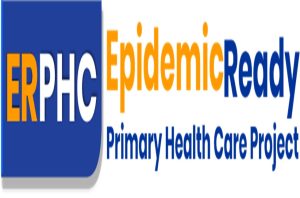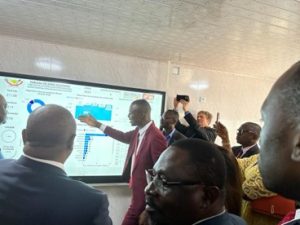AFENET plays a pivotal role towards the declaration of Nigeria as a Wild Polio Virus free country
-
by
AFENET
Nigeria experienced massive transmission of all polio viruses prior to 2014. In 2014, the cases decreased and only six Wild Polio Virus type 1 (WPV1) cases were reported in Kano and Yobe States, while 30 circulating vaccine derived polio virus type 2 (cVDPV2) cases and 35 compatible cases were reported nationwide. However, epidemiological data for polio virus indicated persistent gaps in the quality of surveillance data for acute flaccid paralysis (AFP), and low coverage of routine immunization. At the time, prolonged insecurity in north east Nigeria was a major concern, as many children remained inaccessible to vaccination services, rendering the region the last sanctuary of wild polio virus in Africa. These challenges necessitated innovative strategies to deliver polio vaccines in-between rounds of supplemental immunization activities (SIA).
As a result, Global Polio Eradication Initiative (GPEI) partners together with the Government of Nigeria (GoN) developed and rolled out a robust response plan focused on strengthening routine immunization in polio high-risk areas through building capacity and increasing accountability for routine immunization services, boosting immunity, strengthening polio virus surveillance and outbreak response, and employing innovative strategies to reach children in inaccessible areas.
With funding support from CDC’s Global Immunization Division, AFENET’s NSTOP Nigeria Program was established in 2012. From an initial staffing of a handful, the program rapidly grew to more than 300 staff and consultants that rolled out targeted interventions to support the Government of Nigeria’s efforts. NSTOP established a structure of experienced personnel providing technical support to targeted Local Government areas (LGAs) and states. To address the challenges of insecurity in the north east of Nigeria, a data manager, logistics support team and an AFENET-NSTOP north east zonal coordinator (ZC) were deployed, in addition to the state and LGA officers. The ZC doubled as AFENET’s focal person on Nigeria’s multi-stakeholder working group of the Lake Chad Basin Polio Coordination Task Team (LCBPTT) to which they provided epidemiological support, in addition to Lake Chad Basin states in Nigeria.
NSTOP also deployed a team of trained field epidemiologists as management support teams (MSTs) to support each polio outbreak response vaccination and national/subnational vaccination days conducted in north east Nigeria between 2015-2020.
Further, as part of national AFP surveillance activities, NSTOP Nigeria rolled out enhanced AFP surveillance in 12 states (including in internally displaced people (IDP) camps and IDP host communities), with a focus on strengthening vaccination and surveillance in security compromised areas, underserved settlements, at international border posts, and tracking population movements and settlement habitation. This was done in collaboration with the US CDC (Satellite Imagery), SOLINA, E-Health Africa, WHO, BMGF, UNICEF, CGPP, Rotary International and GoN.
Special AFP surveillance community informants were engaged in Borno State to enhance community surveillance in inaccessible areas, IDP camps and host communities; to distribute AFP surveillance cards; and to support strengthening of routine immunization delivery including data management through DHIS2 implementation. Community informants also played a key role in outreach to IDP camps and host communities and to security compromised areas; and in mapping and vaccination of nomadic populations; and vaccination in international border communities.
These targeted interventions by AFENET’s NSTOP team, working with GoN and partners, contributed to finally eradicating WPV1 from north east Nigeria. Nigeria’s documentation for a polio-free status was accepted on 18 June 2020 by the African Regional Certification Commission (ARCC). The fight against polio virus reached a remarkable milestone with WHO certification of the country and the WHO AFRO Region of wild polio-free status in a ceremony held on 25 August 2020. Consequently, the Africa region was declared polio-free.



